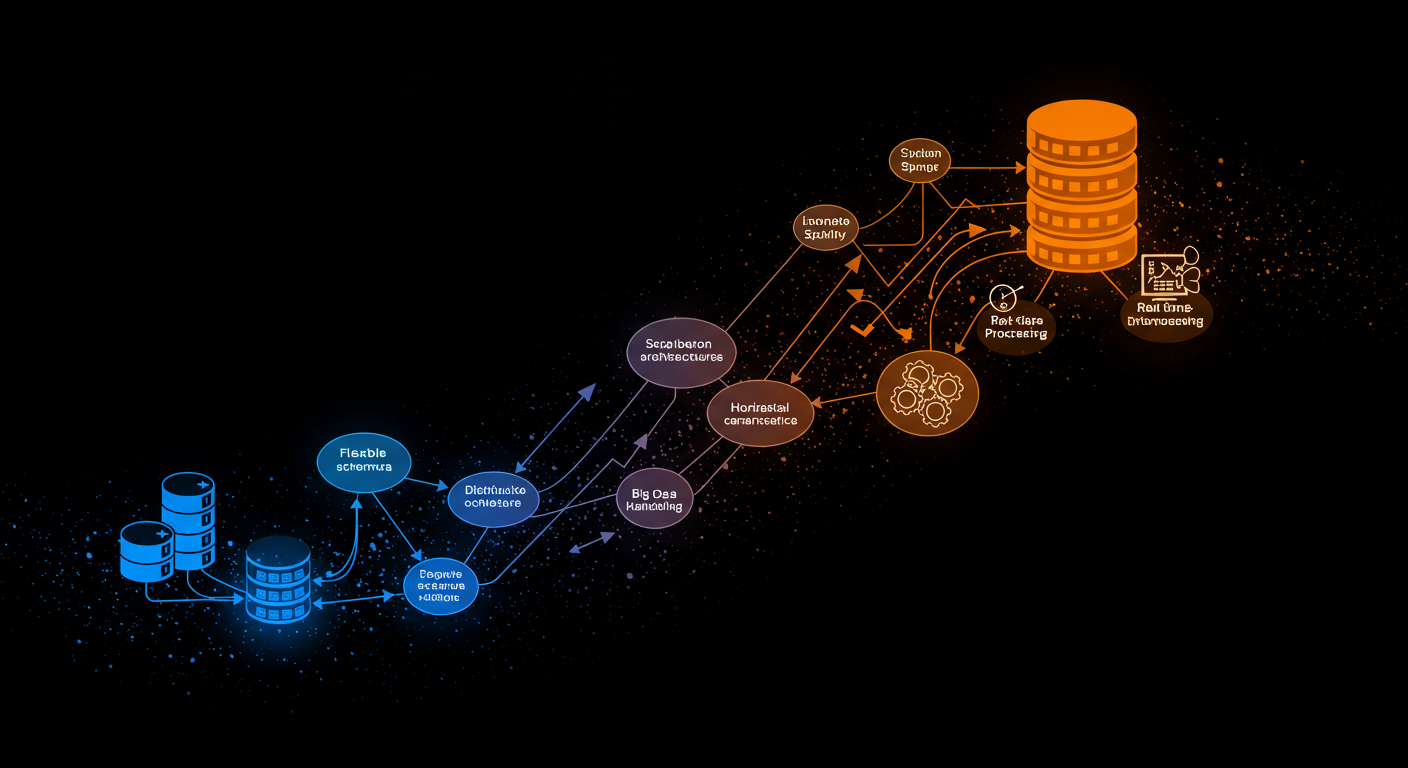Unveiling the Advantages: Key Benefits of NoSQL Databases

NoSQL databases have emerged as a powerful alternative to traditional relational databases, offering a range of benefits tailored for modern application development. Their architecture is designed to handle the velocity, volume, and variety of data that today's applications generate. Let's explore the key advantages:
High Scalability
NoSQL databases are typically designed to scale out horizontally, meaning they can distribute data across multiple servers. This contrasts with the vertical scaling (increasing the power of a single server) common in many relational database systems. Horizontal scalability allows for near-linear increases in capacity and throughput by simply adding more commodity hardware, making it cost-effective for handling large datasets and high traffic loads. This is particularly crucial for applications like social media, IoT, and big data analytics. For instance, AWS offers various NoSQL database services that exemplify this scalability.
Flexibility (Dynamic Schemas)
One of the most significant advantages of NoSQL databases is schema flexibility. Unlike SQL databases that require a predefined schema (tables, columns, data types), many NoSQL databases allow for dynamic or "schemaless" data models. This means you can store data without a fixed structure, and the structure can evolve over time without requiring disruptive schema migrations. This is ideal for agile development environments, applications with rapidly changing requirements, and handling unstructured or semi-structured data like JSON documents, user-generated content, or sensor data.
High Performance
NoSQL databases often provide higher performance for specific types of queries and data operations compared to relational databases. This performance boost comes from several factors, including optimized data models for specific tasks (e.g., key-value stores for fast lookups, document databases for complex object retrieval), distributed architectures, and often, a simpler consistency model (e.g., eventual consistency). They can handle massive read/write throughput, which is essential for real-time applications and services requiring low latency responses. Learn more about performance tuning with NoSQL best practices.
Big Data Handling
NoSQL databases are inherently well-suited for big data applications. Their ability to scale horizontally, handle diverse data types (structured, semi-structured, unstructured), and support distributed processing frameworks makes them a natural fit for storing and processing vast amounts of information. Many big data ecosystems, such as those built around Hadoop and Spark, integrate seamlessly with various NoSQL databases to leverage their strengths in data storage and retrieval. This capability is critical for data warehousing, analytics, and machine learning workloads.
These benefits make NoSQL databases a compelling choice for a wide range of applications. By understanding these advantages, developers and architects can make informed decisions about when and how to leverage NoSQL technologies to build robust, scalable, and high-performing systems.